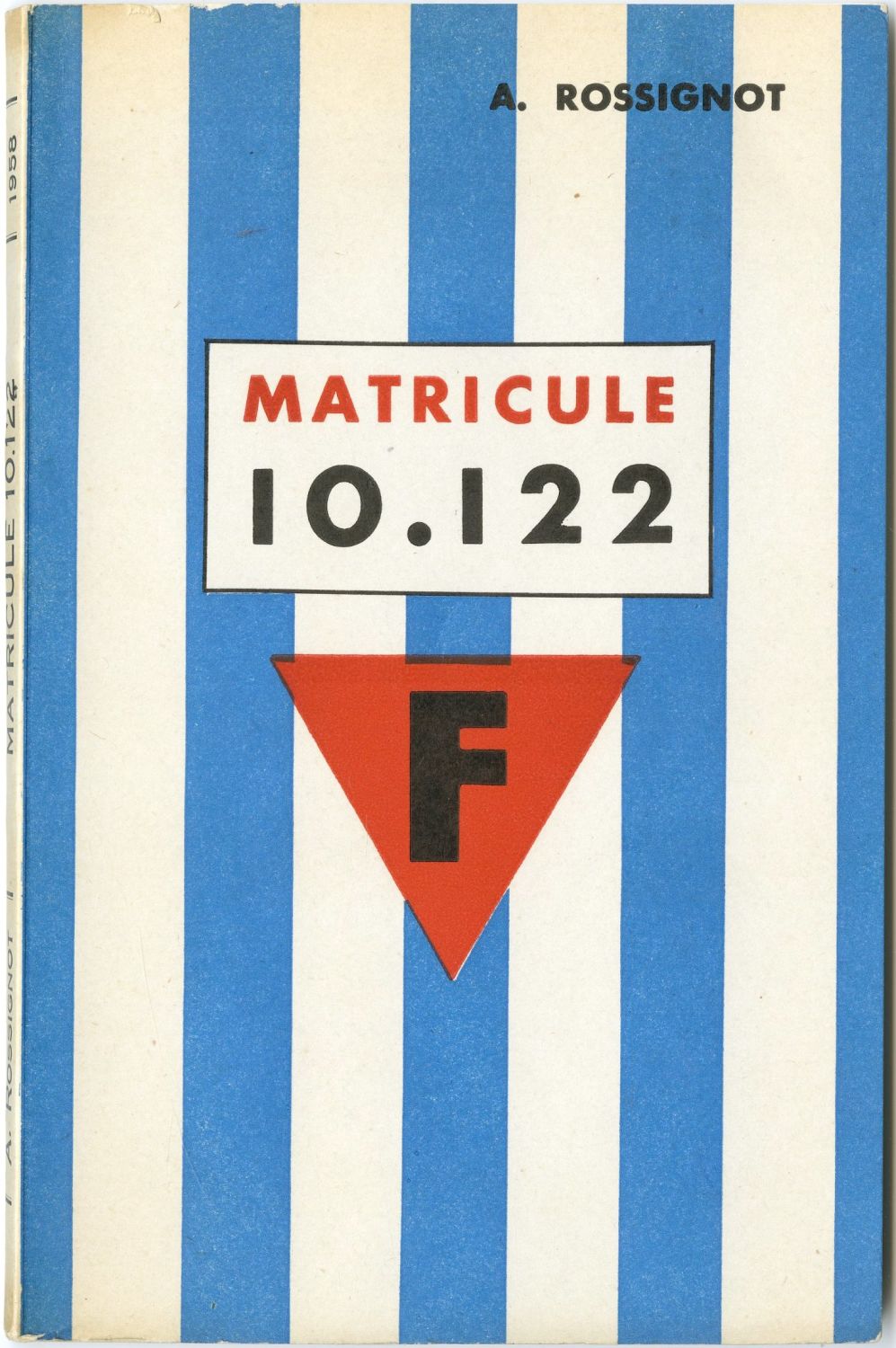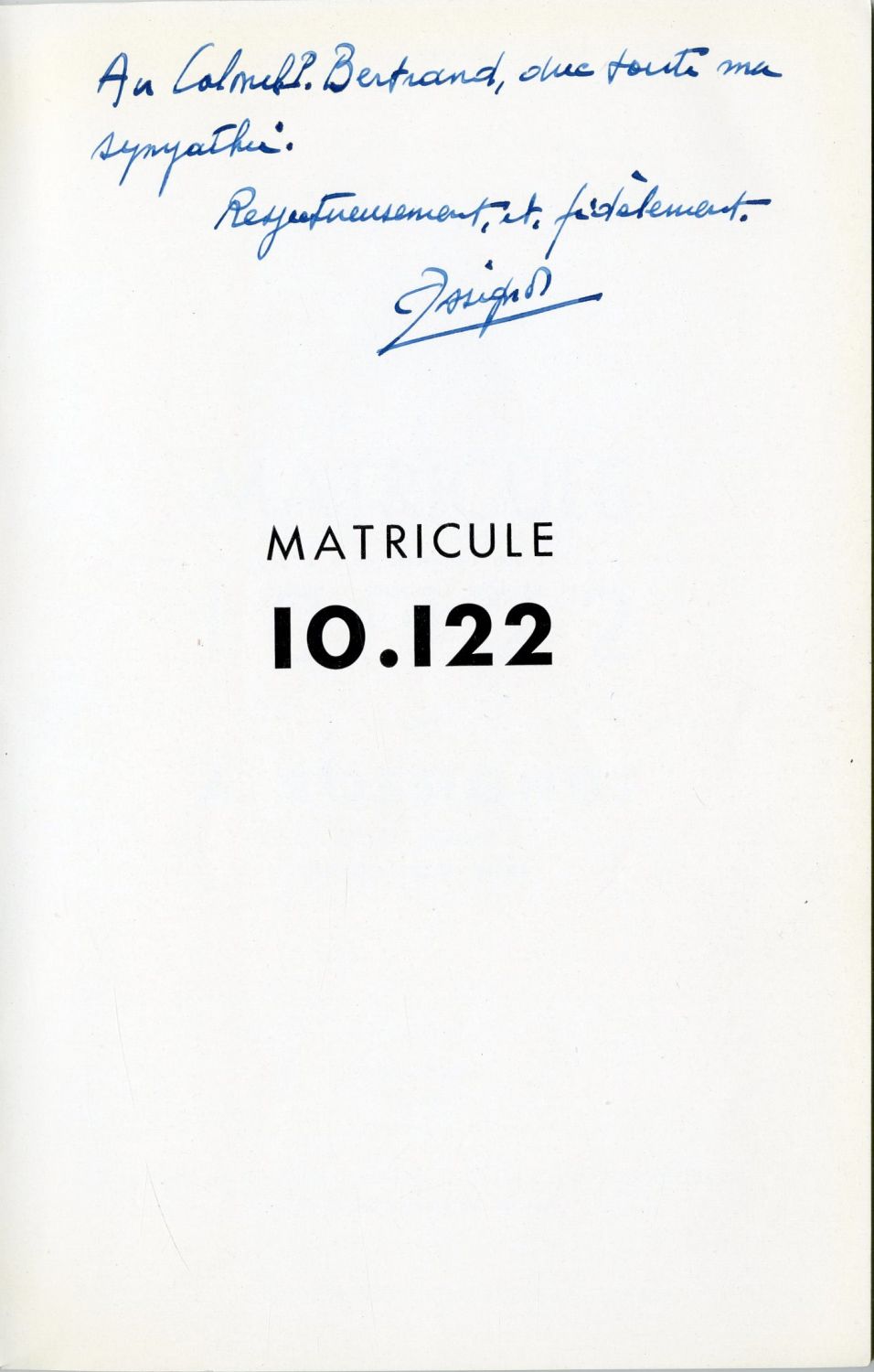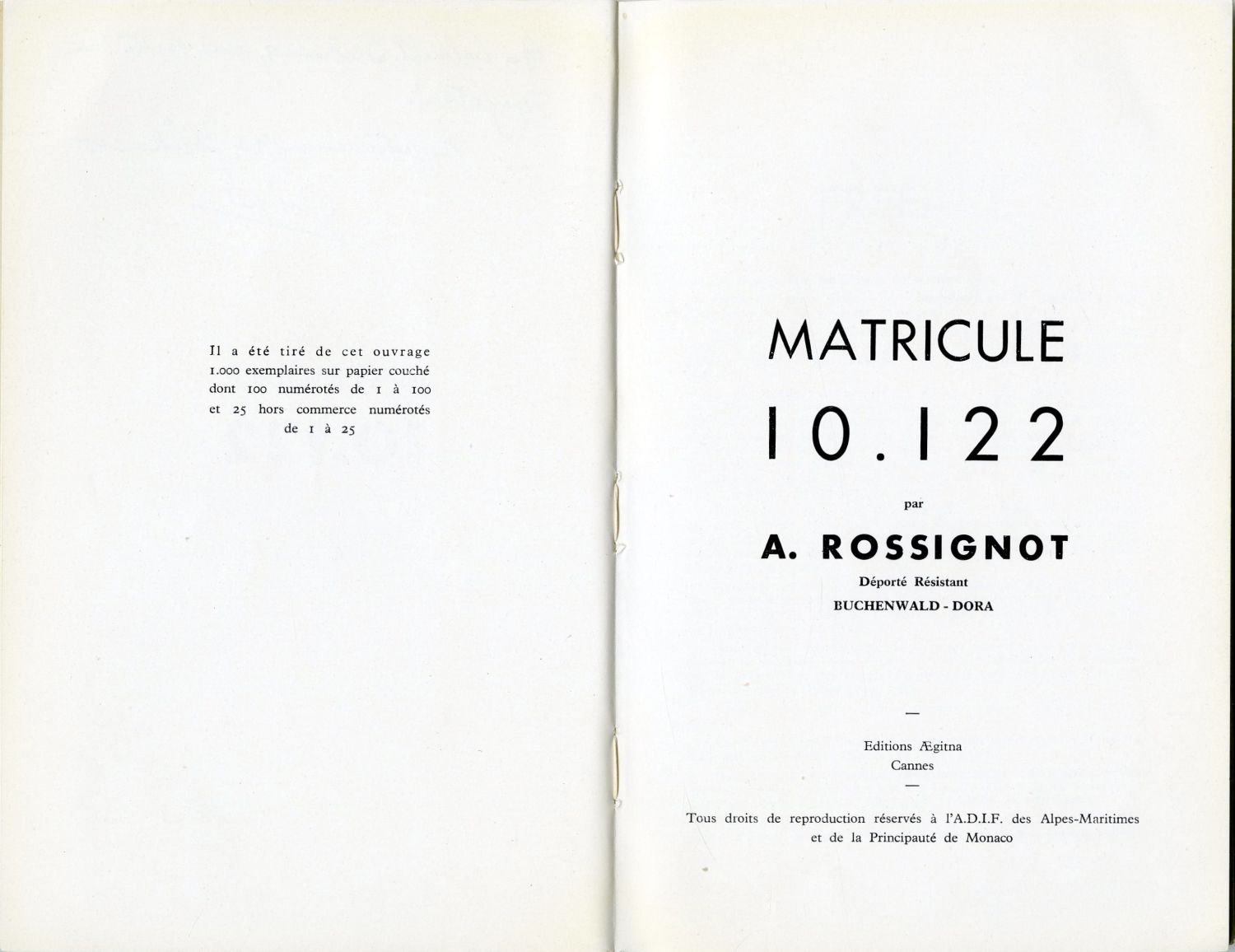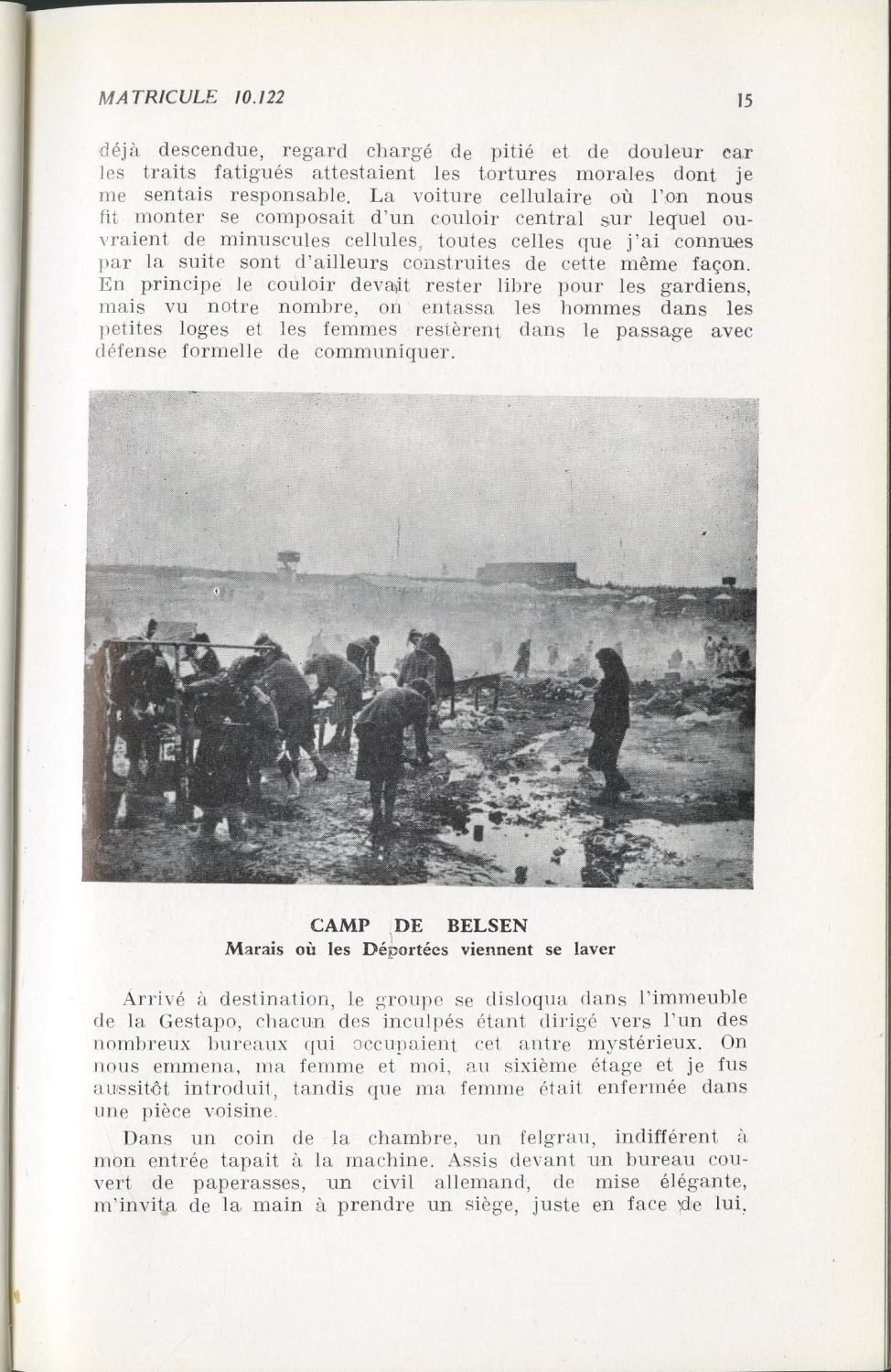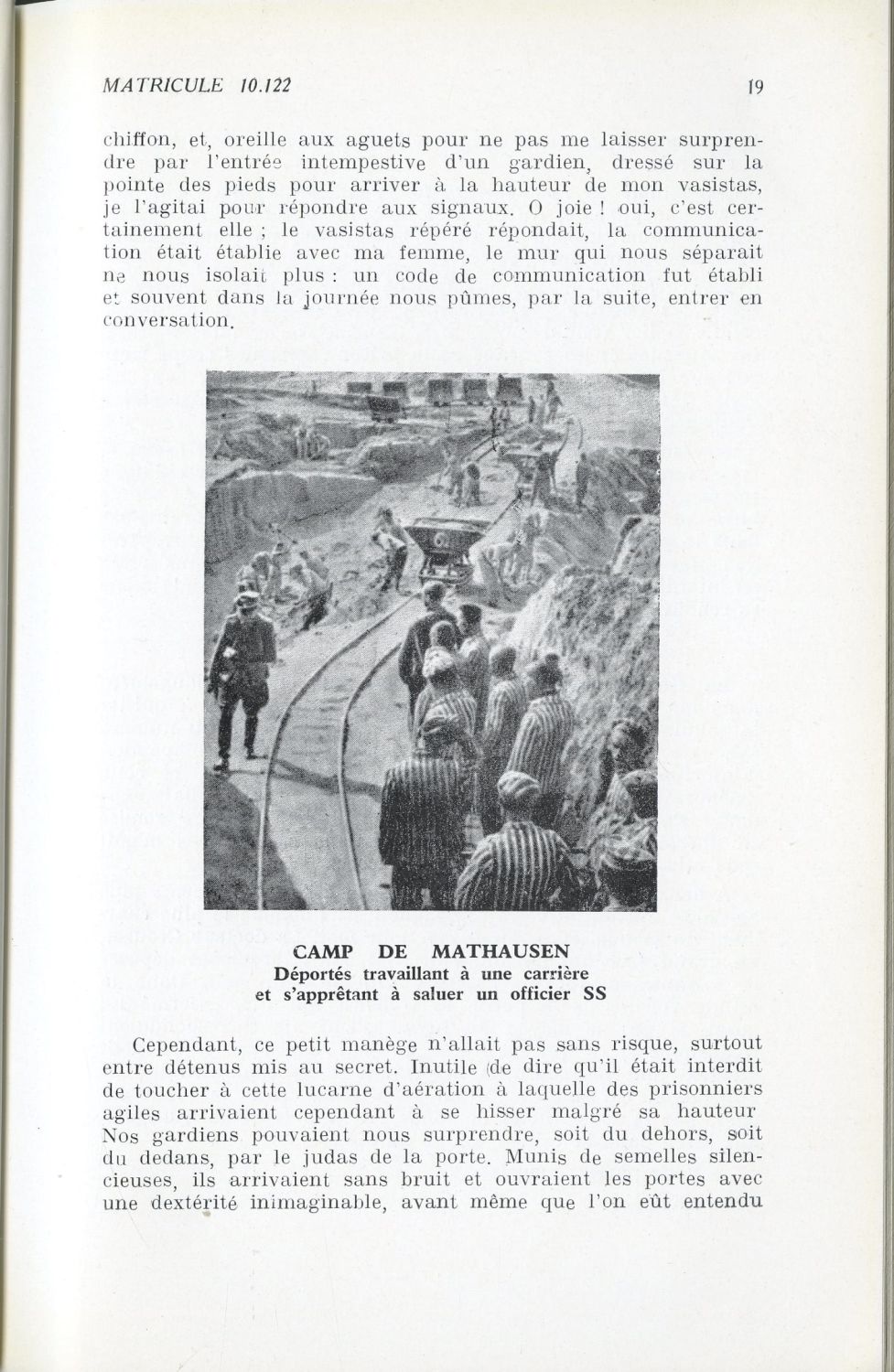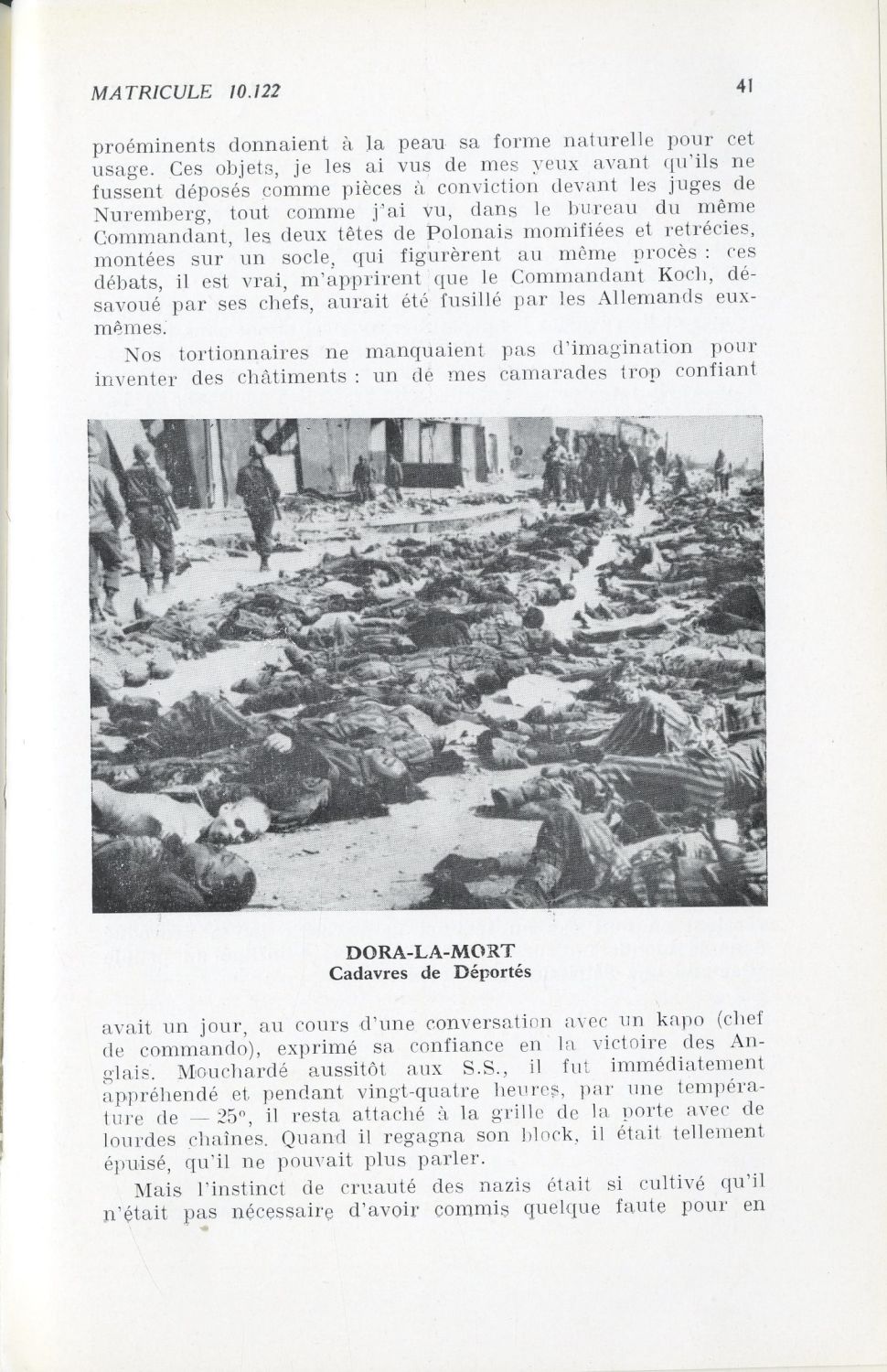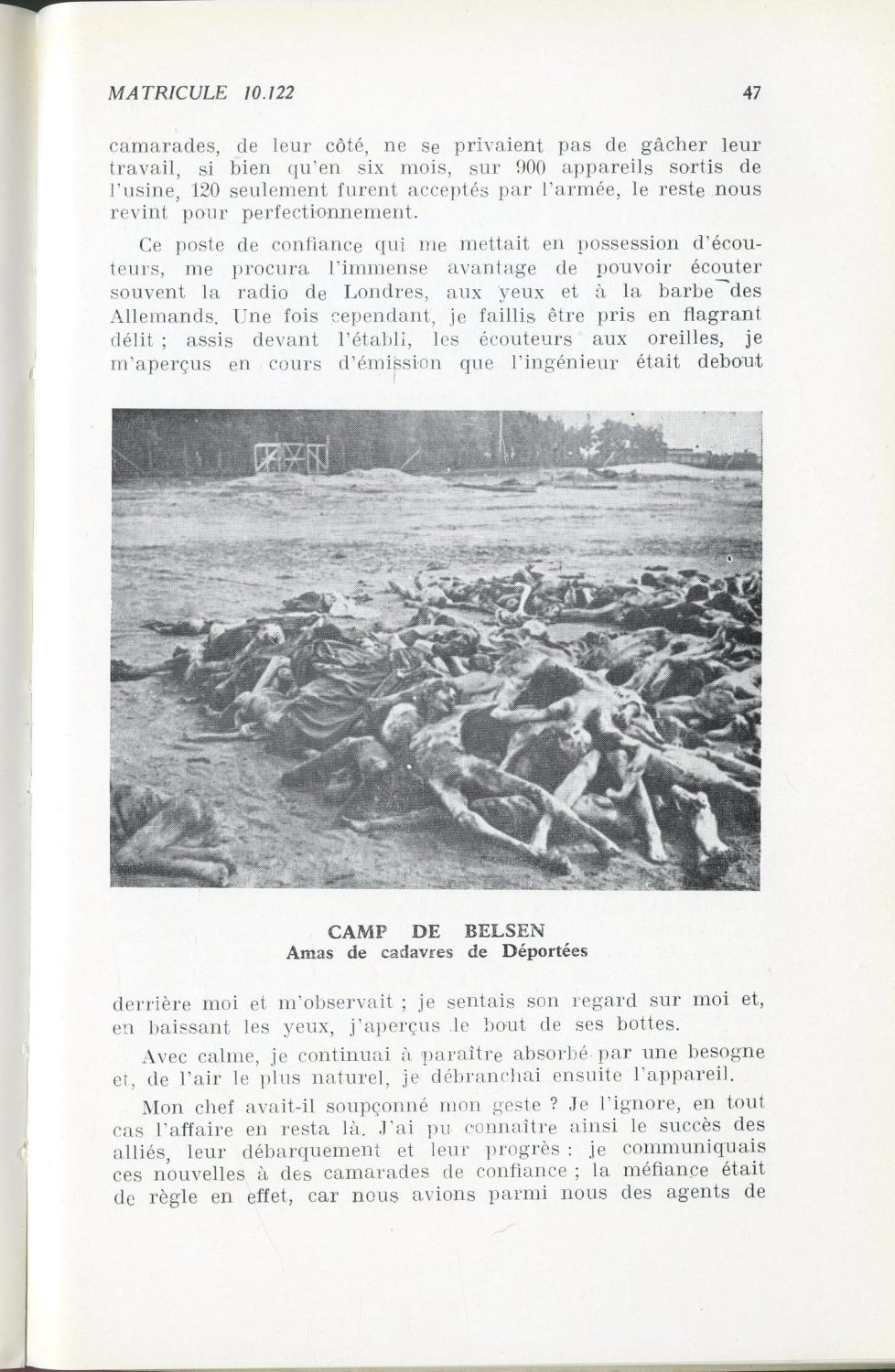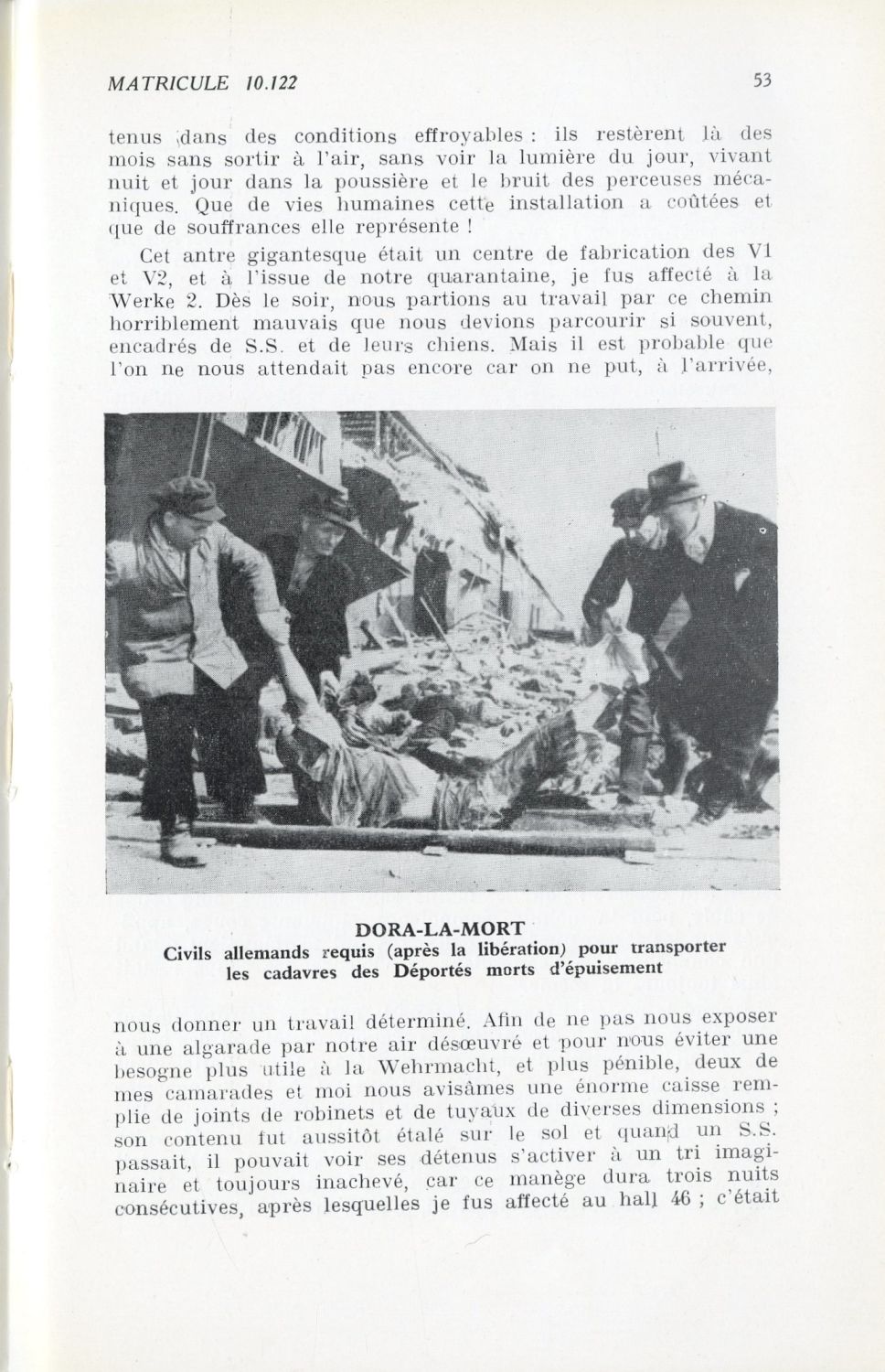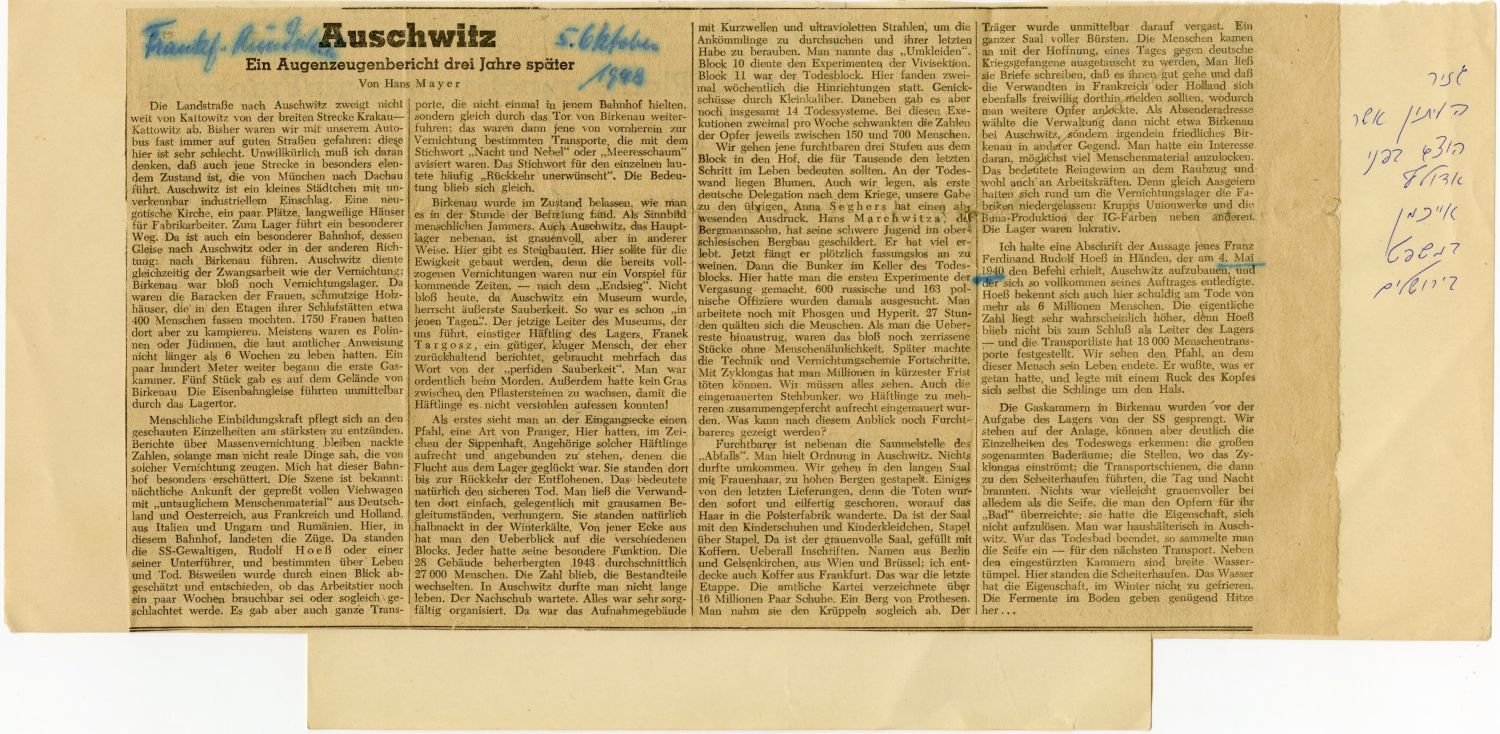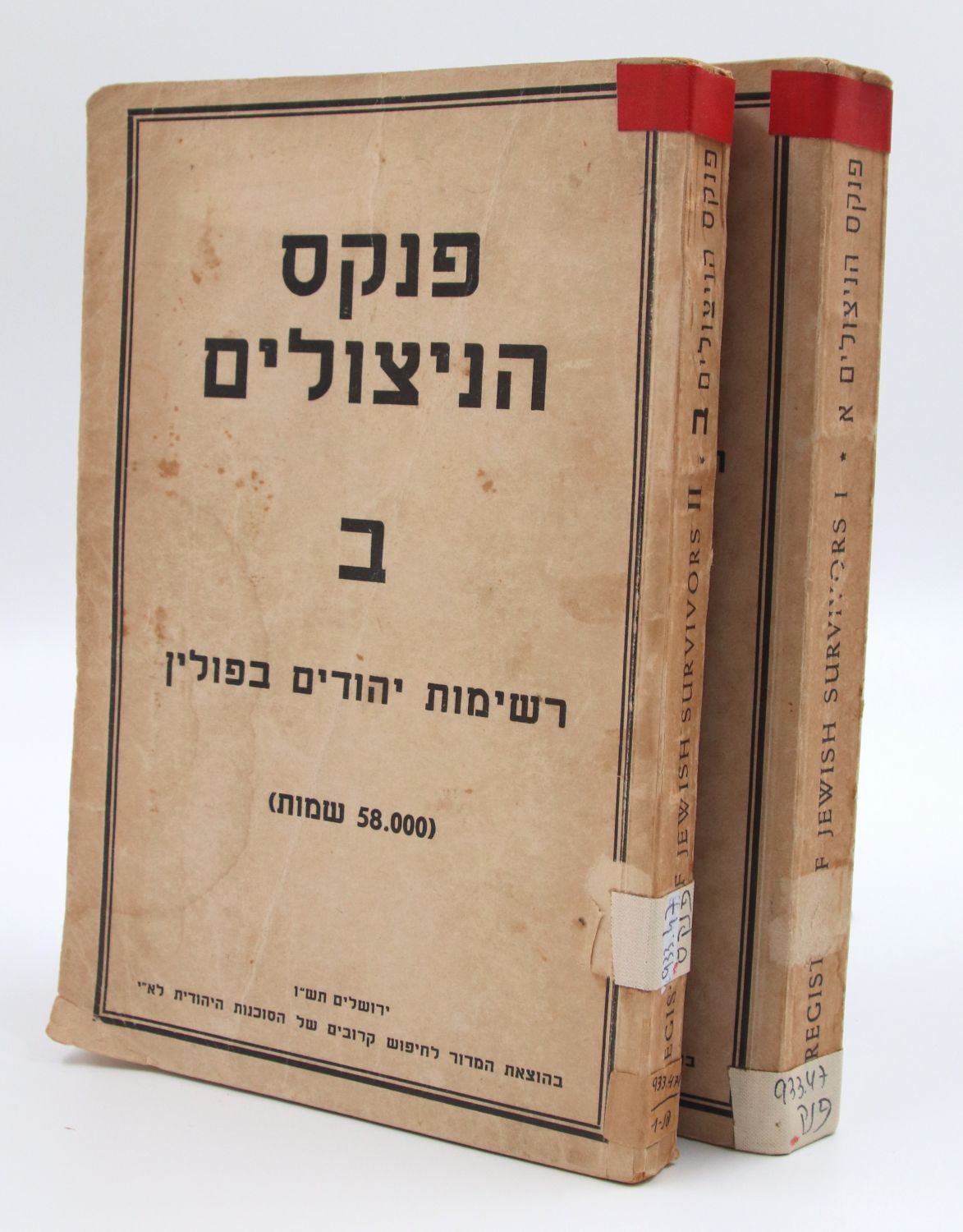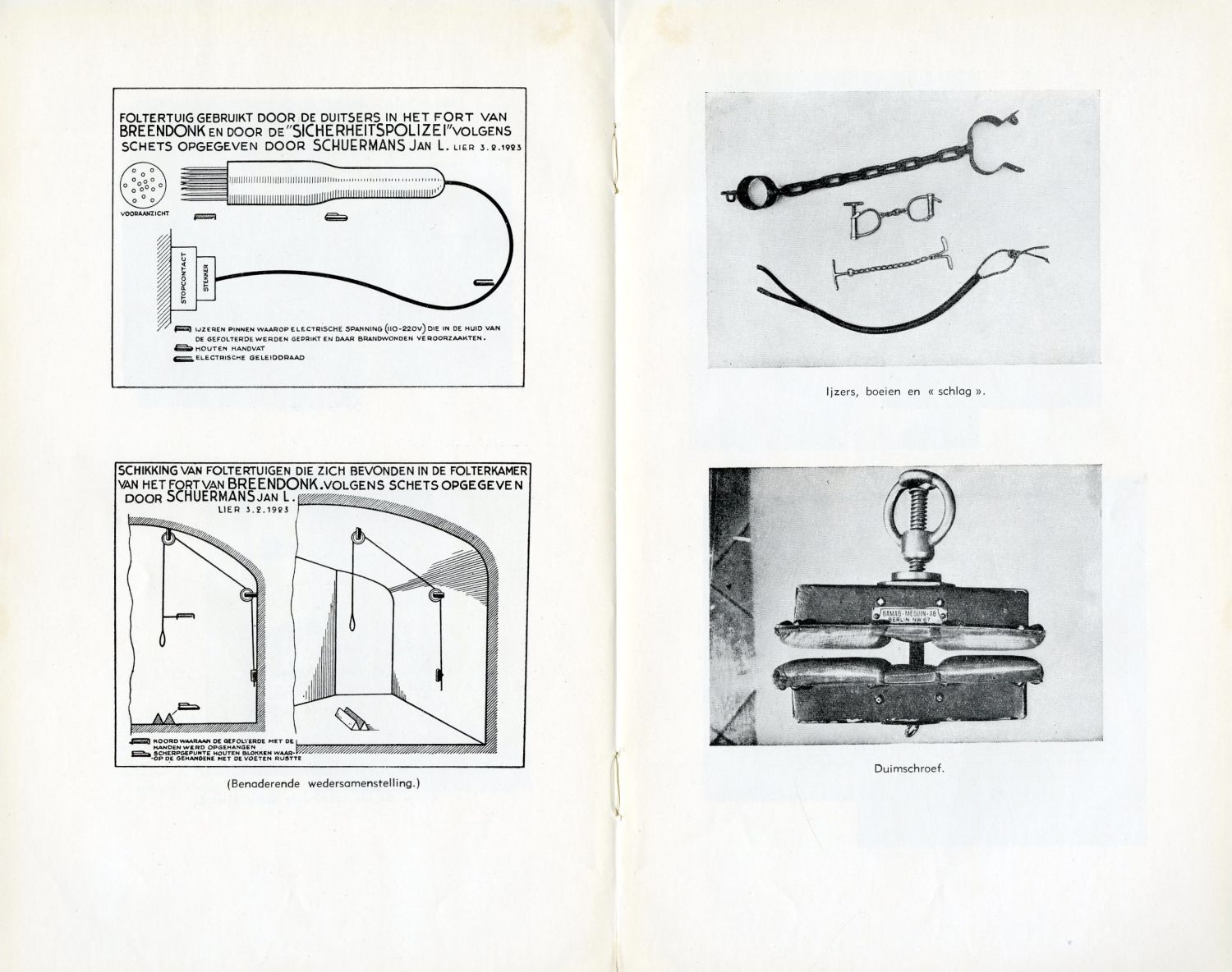MATRICULE 10.122 buchenwald-dora מאת A. Rossignot - Deportee No. 10.122, Testimony of a French underground activist, about his stay in the Buchenwald and Belsen camps for a period of about two years! Foreword by Dr. Roger Beard President of the A.D.I.F. Department of the Principality of Monaco. Published by L'A.D.I.F. des Alpes-Maritimes et de la, Principality of Monaco, July, 1958 - First Edition - Limited edition of 1000 copies only, copy with author's dedication French.
The author was arrested in Paris in March 1943 on charges of membership in an underground organization that operated in the Marne River region. After four months in prison and completely cut off from his family members, during one of the prisoners' "walks" in the yard, he noticed that his wife was imprisoned in the same compound when he recognized her face looking out of one of the windows. After six months in which he was held in the Gestapo prison under repeated interrogations in an attempt to extract information about the other members of the underground organization, he was taken to Buchenwald. Already on the first day of his arrival at the camp, he was subjected to severe torture for no reason. In the camp he was taken to live in block 31 with the three-story wooden beds and a terribly dense straw mattress. In the first months, he was employed in forced labor to build another wing for the expansion of the camp, when every day he witnessed the bodies of prisoners who died of starvation throughout the camp, and the severe abuses he and his friends went through, which he details in the book. He witnessed the torture of prisoners who tried to escape, and the public executions that took place in the camp almost every day. In addition, he witnessed the experiments that the Nazis performed on the bodies of the prisoners in Block 46, the screams of the torturers were heard by the prisoners throughout the camp. In Buchenwald, he saw for himself the same shocking displays that the Nazis created from the bodies of prisoners - the same displays that were shown at the Nuremberg Trials "I saw them in the camp even before that were presented in the trials" he writes. He adds and describes the horrific torture suffered by prisoners who worked in the quarry, and the daily executions that took place there without any reason.
In the middle of February 1944, when he was already in a state of exhaustion, he was transferred to work in the plants of the Siemens Electric Company under the command of German citizens who were not part of the Nazi SS. The conditions there were better, his body got stronger and thus his life was actually saved. His workplace also had a radio, so he could be updated on the progress of the Allied forces, and realize that the end of the war is close. Towards the end of the war, the Nazis transported him to Dora along with other prisoners on cattle cars in a 70 km journey that took 36 hours due to the many stops along the way. In Dora he was again taken to work and this time in an underground factory. There he also witnessed the mass execution by hanging of 120 prisoners One day. With the approach of the Allied forces, the Germans divided the prisoners into two groups, the commando in which he worked, which numbered 165 prisoners, were put on a train going to Belsen. On its way, the English bombed the railway twice on which it was traveling, and the prisoners were taken off it and began to march on foot under the command of the commanders. Rosengott says that all the way They heard shouts of people calling them: "Hold on! The English are forty miles away! In three more days it will be over!" Even in those moments, when the prisoners knew that the end is coming, there were some who did not have the strength, and who were unable to advance on foot were shot by the Nazi commanders. The group arrived in Belzen on April 14, when most of the Nazis had already left it, and the camp was declared as a neutral zone. The next day they met the allied forces, and the camp was officially liberated. In those moments, he writes, the only thought was not about food, not about rest, not even about the very fact that after all the years of suffering they were freed. The only thought was about finding the relatives : "To find our families who were so concerned about our fate." Eight days after the liberation, ambulances arrived to take them to hospitals in Brussels, while the Belgian Red Cross nurses handed them sweets and French flags along the way. When he arrived at the hospital, it was the first time since the outbreak of the war that he saw a Normal bed sheet on a bed: "Accustomed to living in an atmosphere of hatred and barbarism, beaten and abused constantly, we were amazed to receive smiles, to receive an attitude of sympathy and to meet with so much kindness." He ends his book with a wish to preserve the memory of the martyrs, and to invest the energy in the recovery of France.
The book is accompanied by harsh photographs, Among them: prisoners working in the quarry and preparing to salute the SS officer approaching them, the crematorium - the photo is described: "The camp crematorium where the bodies of the deportees were burned, then the ashes are mixed with excrement to make fertilizer", forced labor in Belzen, bodies of those who perished in Buchenwald, citizens removing bodies from the truck In Belzen to bring them for burial in a mass grave, prisoners take out a body in a crematorium, and more.
Rare. Only two records in the world catalog of libraries world cat.
62 p. 21 cm. Very good condition.

